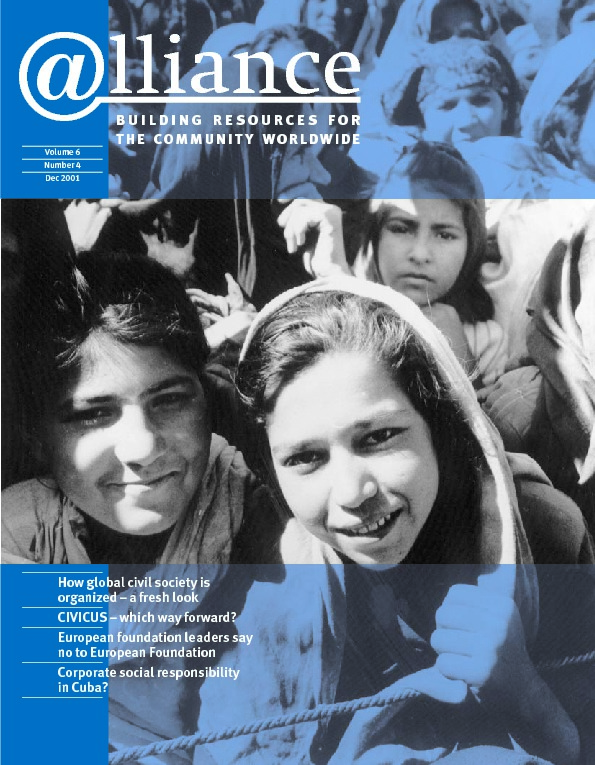InterAction’s 160 plus members receive over $3 billion in private contributions each year, plus over $1.5 billion in government funding. It is therefore vital that both the coalition and its individual members work to preserve the public trust. To this end, InterAction’s members developed PVO Standards in 1992. To date, adherence to the Standards has been a matter for annual self-certification, but it seems that self-certification cannot always satisfy media and public scrutiny.
InterAction’s Private Voluntary Organization (PVO) Standards help assure that its members are accountable in the vital areas of financial management, fundraising, governance and programme performance. The standards were developed by the members themselves and are continually added to and strengthened. A standing committee governed by InterAction members helps oversee compliance.
InterAction members took it upon themselves to self-police their activities through these PVO Standards in an attempt to help insulate themselves, to the extent possible, from the acts of a few bad apples in the sector. Unfortunately, not all NGOs are transparent or well managed or speak for the constituencies they claim to speak for.
Strengthening the standards
From the feedback InterAction receives, both from the media and from institutional and individual donors, it seems that coalition members do benefit from being part of one of the few NGO networks in the USA that has such standards. However, we are learning that self-certification does not always go far enough to satisfy growing demands for accountability in all sectors. InterAction is therefore in the midst of assessing how the standards can be strengthened and, when necessary, enforced.
In response to intense media scrutiny, a sub-group of InterAction members that are particularly vulnerable to public opinion developed standards for their specific work, which were subsequently adopted by InterAction’s general membership and made part of the broader PVO Standards. This sub-group is now in the midst of a pilot project, using a private, independent third party accrediting agency to certify their compliance with the PVO Standards through peer review of their operations. This will be a comprehensive process that will include site visits, both at these agencies’ respective US headquarters and at their field offices in other countries.
Other members will be watching this process with interest as the public’s demands for accountability within government, NGOs and business intensify.
Developing criteria for compliance
The greatest challenge to this pilot accreditation project is the PVO Standards themselves. In order to conduct a useful peer review, consistent, measurable evaluation criteria need to be developed for every standard. But many of the standards do not easily lend themselves to clear and objective criteria as they are not written as absolutes (eg thou shalt have a Board of Directors and have an independent audit every year). Rather, many are deliberately designed to serve as institutional goals (eg thou shalt strive to have greater gender and ethnic diversity in senior decision-making positions). Compliance with these standards is very much a matter of degree. A member’s ability to show that internal policies have been adopted that demonstrate an organizational commitment to make progress towards meeting these broad institutional goals may be more relevant to proving compliance than adherence to some absolute criterion that is difficult, if not impossible, to define.
The fact is that the PVO Standards were designed to serve a dual purpose. As previously mentioned, the primary concern is to preserve and protect the public trust. Just as important, however, is their broader purpose of establishing goals that help member agencies to be more effective in management and programmatic performance. They are not meant to punish or exclude those who may at times fall short of full compliance. Rather, they are intended to be carrots and not sticks that guide member agencies to evolve continually into better-run organizations.
Ken Giunta is Vice President of InterAction. He can be contacted at kgiunta@interaction.org
InterAction
Formed in 1984, InterAction is based in Washington DC. Its 160 plus non-profit member organizations, both faith-based and secular, operate in more than 100 countries throughout the world. Through their work, they foster economic and social development; provide relief to those affected by disaster and war; assist refugees and internally displaced persons; advance human rights; support gender equality; protect the environment; address population concerns; and advocate for more equitable and just public policies.
For more information about InterAction and the PVO Standards, please visit the website at http://www.interaction.org



Comments (0)